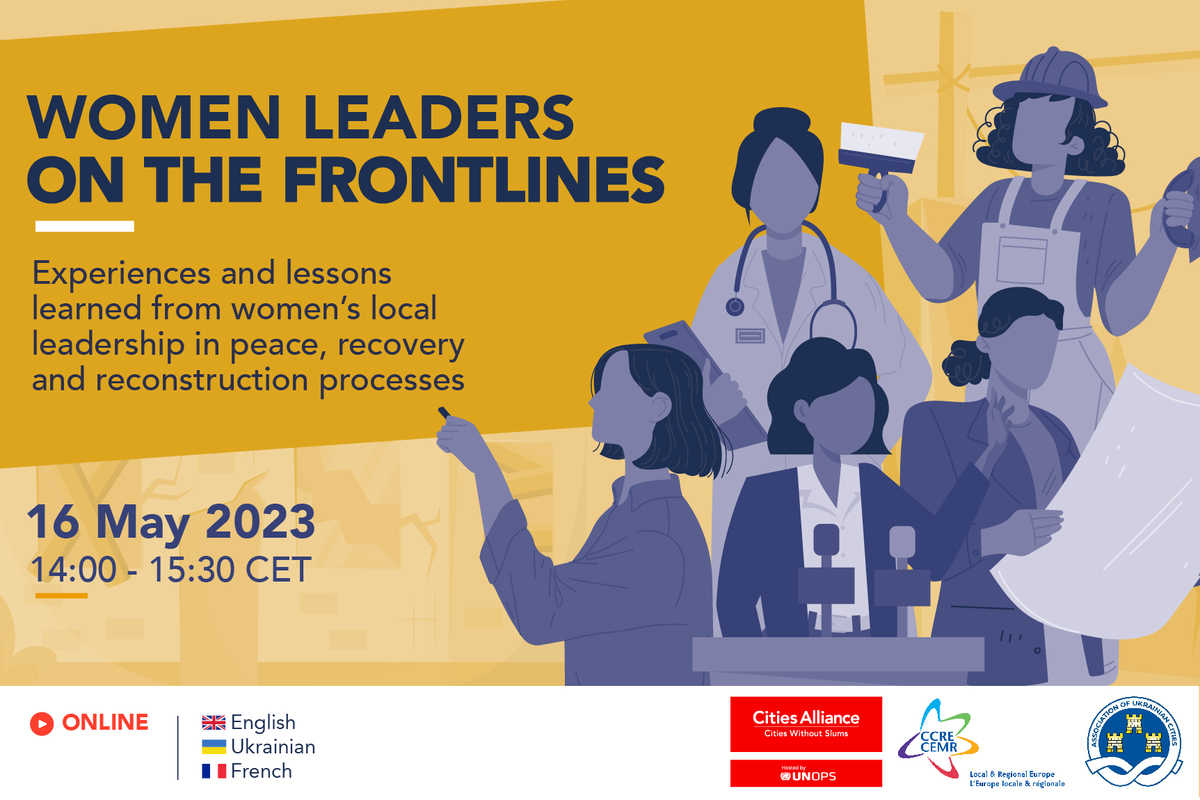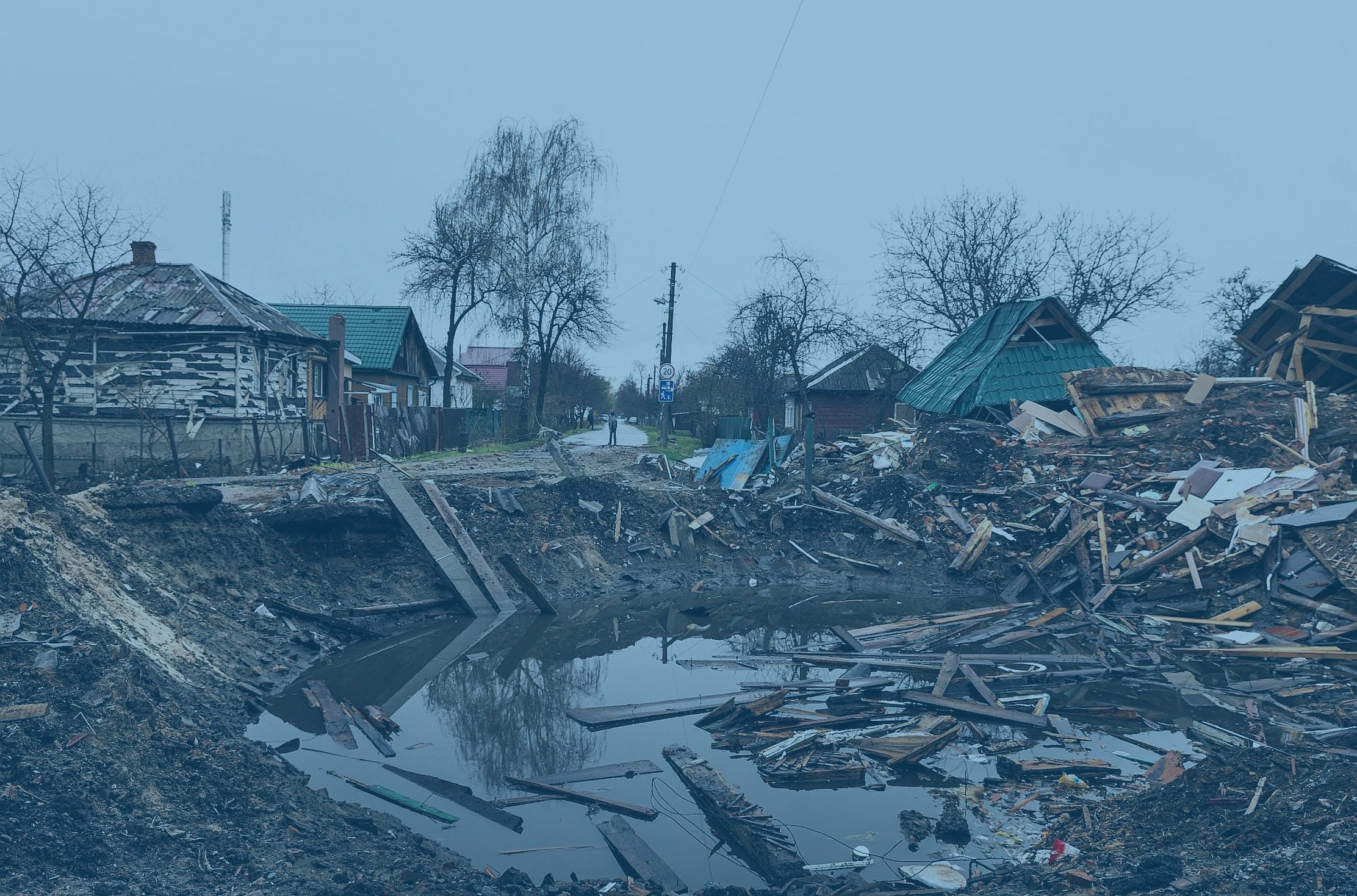Cities Alliance and the Council of European Municipalities and Regions (CEMR), with support from the Association of Ukrainian Cities (AUC), organized the online exchange "Women Leaders on the Frontline" on May 16, 2023. The event aimed to explore gender implications in emergency and crisis contexts, foster dialogue, and share lessons learned between women from Ukraine and other war-affected countries.
The report "Rebuilding with Women: Amplifying their Voices in Ukraine's Recovery" served as the foundation for the discussions during the event. It guided the conversations on the gender implications in emergency and crisis contexts and informed the priorities for action. The publication emphasizes that women and girls are disproportionately affected by conflicts and play a crucial role in Ukraine's resistance and recovery. It also highlights the need for connecting with women leaders abroad to exchange experiences and enhance inclusive reconstruction planning.
During the discussions, a key message emerged: Placing women at the heart of decision-making and negotiations is crucial for inclusive and participatory peace, recovery, and reconstruction processes. Building upon this message, the session provided a number of essential insights that are applicable to different geographies, crisis contexts, and recovery situations:
- Collaborating with NGOs and local women-led organizations focused on gender and human rights is crucial in crisis contexts. Data collection and addressing the specific needs of women require better planning instruments and municipal-level statistics.
- Prioritizing the re-establishment of social infrastructure and city accessibility reduces the burden of care on women, enabling them to pursue education, employment, and development opportunities.
- Addressing gender-based violence and sexual violence, including domestic violence, requires reporting mechanisms, victim support, justice provision, and the establishment of shelters and safe houses.
- Women's participation and leadership in peace negotiations and post-conflict development processes bring diverse perspectives and priorities to the decision-making table. Municipalities should commit to gender equality and implement action plans with guidelines, recruitment campaigns, and capacity-building for women in management, leadership, and political skills.
- Empowering women-owned businesses and organizations through development programs, grants, and funding promotes economic independence. Family-friendly work arrangements and addressing occupational segregation contribute to women's reentry into the workforce.
- Acknowledging that the recovery process is lengthy and sensitive, addressing issues such as gender-based violence and sexual abuse requires dedicated attention and policy measures.



